Making better laws for Wales The National Assembly for Wales Constitutional and Legislative Affairs Committee has been looking at how laws are made in Wales, and whether the process can be improved.
Why did we hold this inquiry?
Following a referendum in 2011, the National Assembly for Wales has had powers to make laws. A proposed law is referred to as a Bill. Once a Bill has been passed by the National Assembly for Wales, it is given approval by the Queen (known as Royal Assent). It becomes an Act of the Assembly following the application of the Welsh Seal by the First Minister.
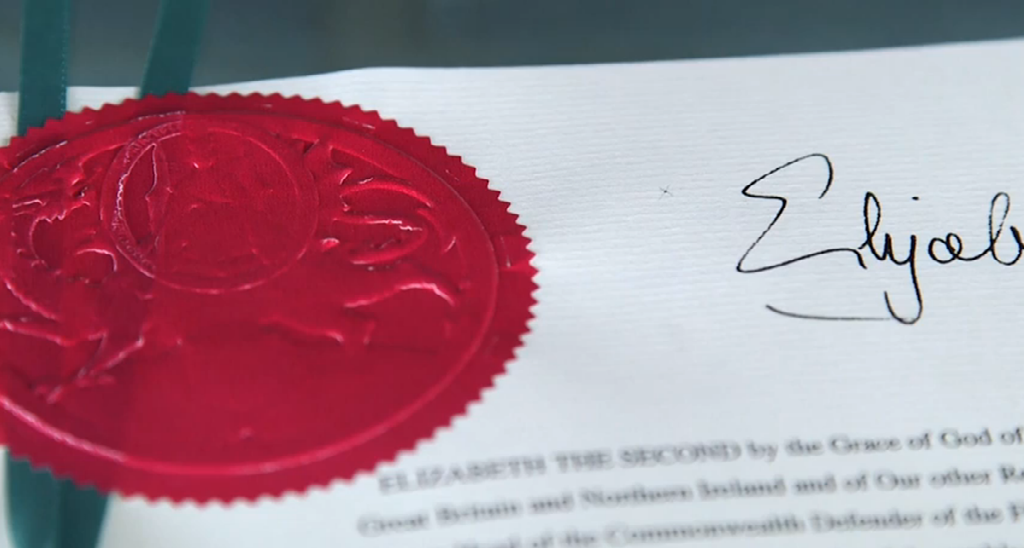
By December 2013 we started to notice trends emerging, some of which had been raised by the Constitutional Affairs Committee during the previous Assembly of 2007-2011. In light of this, we decided to review all aspects of the legislative process to help improve law-making in the future.
In March 2014, we launched our inquiry Making Laws in Wales, to identify ways in which aspects of the law-making process could be improved.
We believe that the first Assembly with full law-making powers should have a thorough review of the procedures used. This would allow us to reflect and prepare for the next Assembly in 2016.
- Written consultation responses: 20
- Evidence sessions: 9 (witnesses: 38)
- Stakeholder event: 1 (participants: 18)
We used different ways to ask people what they think about the process of making and writing laws. After inviting people to send written responses, we asked some people and organisations to speak with Assembly Members (AMs) at official meetings at the Senedd in Cardiff.
These included: the Presiding Officer; members of the Welsh Government, including the First Minister; backbench Assembly Members; the Welsh Local Government Association; the British Medical Association Wales; Civitas Law; the Hansard Society; the Welsh Language Commissioner; the Law Commission; and the Auditor General for Wales.
An event was held in October 2014 where AMs could discuss the issues in more detail and speak to a wider range of people. In group discussions, attendees and Assembly Members explored questions and issues surrounding how laws are written and drafted, policy development and Assembly scrutiny, and allowed people to share their views on what could be done to improve how laws are made.
Daniel Greenberg, an expert legal advisor, helped the Committee throughout the inquiry.
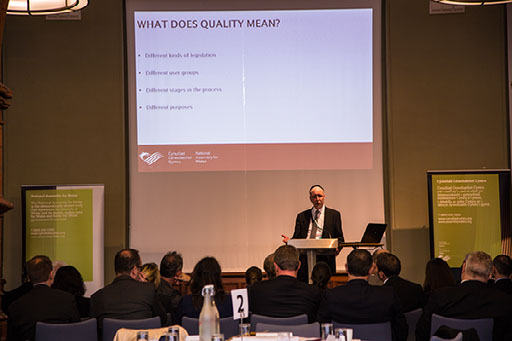
Following the evidence gathering process, the Committee shared the draft report and initial findings with an expert panel who specialise in Welsh law. The members of the panel were:
- Marie Brousseau-Navarro: co-founder of the constitutional training and consultancy firm, YourLegalEyes, which provided written evidence to the inquiry;
- Professor Thomas Glyn Watkin: Honorary Professor of Law at Bangor University and Cardiff University; former First Welsh Legislative Counsel to the Welsh Government and a Fellow of the Learned Society of Wales, which provided written evidence to the inquiry.
- Huw Williams: a solicitor and the Lead Partner, Public Law at the law firm Geldards LLP
The panel considered the draft report and reflected on the evidence received using their expert knowledge and experience in the field.
We are very grateful to all those who have contributed to our work.
Our recommendations for improving law-making in Wales
We believe improvement and development are possible in many areas, building on the foundations already in place.
Our report addresses these issues in six broad themes, although many of them overlap:
- the Welsh Government’s overall approach and management of the legislative programme;
- preparation and drafting of Bills;
- Explanatory Memoranda;
- legislative scrutiny;
- accessibility of legislation; and
- other issues.
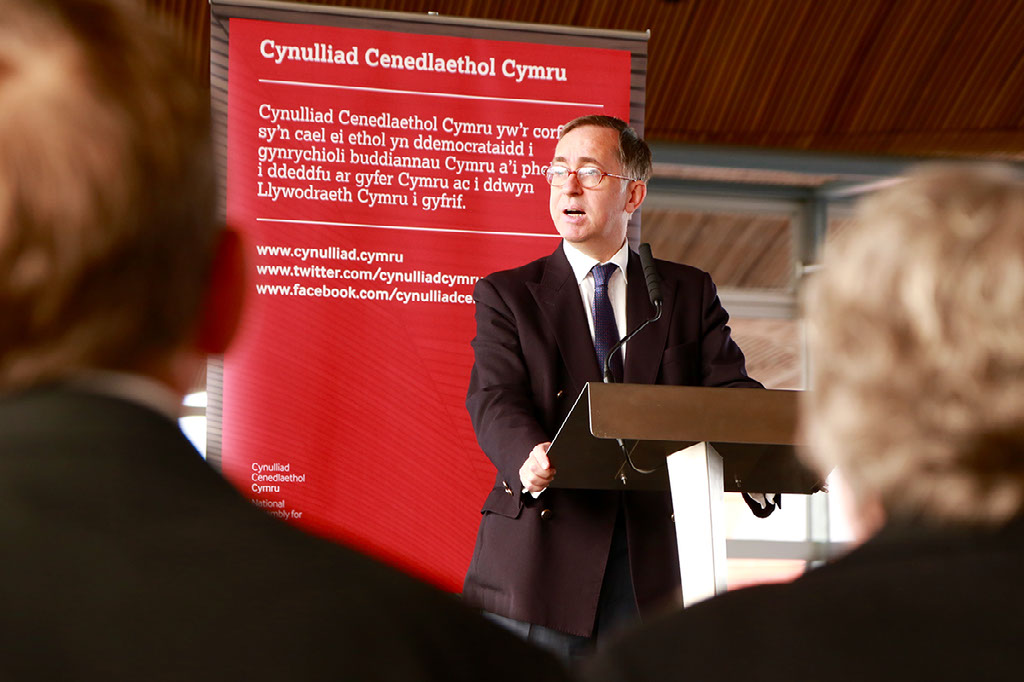
Preparation and drafting of Bills
Policy development: what we were told
People had concerns around elements of the Welsh Government’s policy development process, including:
- time available for the public to contribute;
- the public’s ability to influence.
“We wished that the consultation documents were sometimes more precise and intelligible, in particular in relation to the Environment Bill White Paper. We suggest that such documents should address more clearly what the current law says about a subject, why it is considered that it does not meet current requirements and how the Member in charge of a Bill (AM or government) seeks to remedy this. Sometimes it is difficult to understand from the policy documents why a present law needs changing.” (YourLegalEyes)
“We consider that better legislation can be promoted by: identifying and analysing the underlying policy issues in a way which will highlight clearly the problems to be addressed and possible solutions; formulating well thought-through policy objectives, with transparent impact assessment; carefully assessing whether a legislative or non-legislative solution would be more appropriate; and setting aside adequate time and resources for pre-introduction public consultation and solution-testing.” (Law Commission)
What we said in our report
- More time should be spent on policy development to ensure that Bills are fully considered and accurate when they are introduced;
- more robust policy development criteria should be adopted;
- a commitment should be made to provide earlier and appropriate consultation periods;
- clear explanations should be given to participants on how their feedback has influenced legislative proposals.
Pre-legislative scrutiny: what we were told
Pre-legislative scrutiny is the scrutiny of a draft Bill issued for consultation by the Welsh Government.
As the National Assembly for Wales has only one Chamber, stakeholders told us the use of draft Bills is vital for a range of reasons. A draft Bill can:
- indicate legislative intent;
- allow earlier engagement in the legislative process;
- highlight contentious issues earlier; and
- provide an additional opportunity to influence legislation.
People also told us that financial information should be available at the draft Bill stage.
"If you’ve got a very clear pre-legislation stage, I think it aids the scrutiny process." (Auditor General for Wales)
What we said in our report
- There should be a presumption in favour of publishing draft Bills.
- Explanatory Memoranda, which accompany Bills presented to the Assembly, should be amended to include information on draft Bills (eg whether a draft Bill was published, and if not, why not and details of how the draft Bill is different to the introduced Bill).
- We agree that a financial memorandum should be published alongside all draft Bills. We do not consider this to be an onerous task as this information is essential to the development of policy and legislative proposals so should be readily available. We also believe that it will aid the financial scrutiny of a Bill, a concern for many of the people we spoke to.
The balance between primary and secondary legislation: what we were told
When a Bill does not include enough information, it may mean that extra (or secondary) legislation is needed to fulfil the aim of the Bill and what it tries to achieve.
“It is tempting for those involved in the work of government to view the legislative process as a means of furthering their policy objectives, rather than as a method by which the needs of democracy are served.
"Those making choices regarding whether to place provisions on the face of primary enactments or to reserve them to later subordinate legislation, as well as choosing the level of scrutiny to which that subordinate law-making is subjected, should be constantly justifying their choices according to the principles of democratic government.
"If their provisions directly affect the lives of citizens by imposing duties, conferring rights or conferring powers, or intend to give government or public bodies powers which will affect such duties, rights or powers, then the democratically-elected representatives of the citizens should be afforded the opportunity fully to deliberate, debate and decide upon those proposals.” (The Learned Society)
What we said in our report
The balance between primary and secondary legislation is not always appropriate. We were unconvinced about the repeated need for ‘flexibility’ and ‘future-proofing’ which the Welsh Government cites regularly when proposing secondary legislation to supplement Acts with significant policy detail at a later date.
We believe the Welsh Government should:
- review its approach to the balance between primary and secondary legislation and publishes the findings of the review, and;
- consider the techniques which could make the use of delegated powers more acceptable.

Explanatory Memoranda
What we were told
Each Bill presented to the Assembly must also be accompanied by an Explanatory Memorandum that sets out its policy objectives, details of any consultation already undertaken, estimates of the costs of implementing the Bill and any other relevant information.
They play a key role in helping people understand legislation, and assist with effective scrutiny. However, there is a wide variety in their quality, and some can be difficult to navigate and cumbersome.
“… well-drafted and comprehensive Explanatory Memoranda are essential if we are going to be able to scrutinise legislation properly.” (Dame Rosemary Butler AM, Presiding Officer of the National Assembly for Wales)
What we said in our report
We agree with the evidence people gave us. In our view, a poor Explanatory Memorandum can have a detrimental effect on the Assembly’s ability to scrutinise a Bill and the ability of all those affected by it to understand a Bill’s purpose and effect.
We believe that the Welsh Government’s approach to Explanatory Memoranda needs to be overhauled, both in terms of how they are presented and what they should include.
What we think should happen
- The Welsh Government review the approach to the presentation of Explanatory Memoranda in readiness for the next Assembly;
- The Business Committee reviews the Standing Orders in relation to Explanatory Memoranda, and how important information is presented and some of its content (financial information, human rights and a table of derivations).
Legislative scrutiny
Scrutiny: what we were told
The Assembly’s legislative scrutiny process is generally effective, but some people expressed concern about the time available for Stage 1 consultation. Some said that because the Assembly does not have a second revising chamber, the scrutiny process could be strengthened.
“I think that time needs to be factored in to make sure that stakeholders do actually get the opportunity, because the laws are about the people of Wales, and, if they cannot have their say in them, then they are not going to be fit for purpose at the end.” (Dame Rosemary Butler AM, Presiding Officer of the National Assembly for Wales)
What we said in our report
We feel that if the Welsh Government accepted the recommendation about the presumption of publishing draft Bills, this would address some concerns about limited time.
However, the time available for Stage 1 scrutiny should be considered by the Business Committee at an appropriate time in the Fifth Assembly (to take account of whether the Welsh Government have accepted the recommendation on draft Bills).
We recommend that the current, optional Report Stage is made compulsory. We feel that this will help improve the quality of law, which is a key outcome they are seeking to achieve.
Fast-tracking: what we were told
The use of ‘fast tracking’ procedures for legislation, which enabled the by-passing of compulsory stages of scrutiny, has caused concern. Legislation made in haste is often bad legislation, but the Welsh Government said that sometimes it was necessary and appropriate:
“… clearer criteria should be adopted that would permit such curtailed scrutiny only when it is specifically justified by needs of urgency.” (British Medical Association)
What we said in our report
We share the concerns of stakeholders that such procedures should be used sparingly, and that if they are, the reasons should be clear and the decision-making should be transparent.
We recommend that the Business Committee reviews the procedures that permit by-passing Stage 1 scrutiny and the use of Welsh Government Emergency Bills, and publishes the reasons for a decision being made in each case.
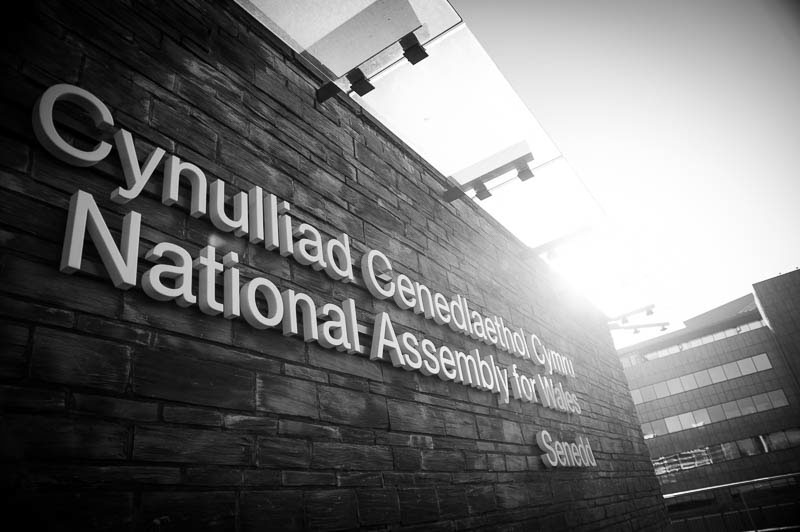
Accessibility
What we were told
Legislation must be accessible to the public. Accessibility includes the following qualities: clarity of language; consolidation; and ease of access to up-to-date Welsh legislation. It can be difficult to locate the legislation that currently applies, and there is a gap between what is available commercially and what the general public can access. Additionally, the importance of standardised terminology across both English and Welsh was highlighted.
“Legislation in Wales needs to be clear and accessible to more than just lawyers.” (Elaine Edwards, General Secretary, Undeb Cenedlaethol Athrawon Cymru)
“… a complicated and often protracted approach to commencement means that professionals and service users are unclear whether or when law is in force and, currently, the only way to find this out is to invest in often expensive access to commercial legislative databases." (Welsh Local Government Association)
What we said in our report
Everyone should be able to easily access up-to-date legislation. We have recommended that the National Assembly for Wales, the Welsh Government, and the National Archives work together to improve the accessibility of Welsh legislation.
We also recommend that the Welsh Government should lead in the production of a database of terminology.
We also agree with the Welsh Language Commissioner that:
“The Welsh Government should lead the way by ensuring that standard terminology – and any other language resources developed – are shared with internal and external stakeholders in the most accessible way possible, in order to promote and facilitate the use of Welsh in this area.”
Consolidation
Consolidation of law means taking an area of law that has fallen into disrepair as a result of lots of changes and modification, and drafting a single clear text, in accordance with best contemporary practice. There is a clear need for consolidation of Welsh law in key policy areas, and this need will increase as more Welsh Bills are passed. This is an issue on which we received substantial evidence.
“No greater contribution could be made to the clarity and simplicity of Assembly legislation than a programme of consolidation of statute law in relation to devolved fields such as Education, Local Government, Planning, the Environment etc.” (Keith Bush QC)
“… repeated legislative activity in a particular field can distort the law—distort the shape of the statute—with different amendments at different times, and it can leave the law in a poor state.” (The Law Commission)
What we said in our report
The Welsh Government should work closely with the Law Commission to develop a long term plan for consolidating Welsh Law. We recommend that the Business Committee should prepare a Standing Order, which would expedite the progress for consolidation Bills which do not involve any substantial change in law.
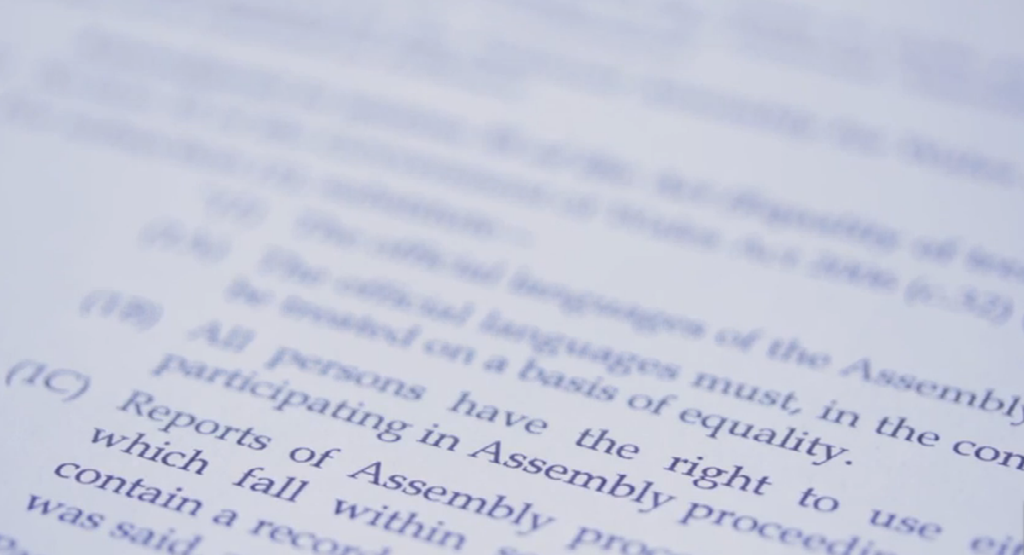
Other issues
We also looked at other areas which could potentially improve the law-making process. For details, please see the Constitutional and Legislative Affairs Committee’s full report Making Laws in Wales.
We will share our findings with the Welsh Government and Assembly Commission, who have to respond to the recommendations we made. We are then likely to hold a debate in Plenary, on our findings and the responses to the recommendations.
How to get involved and keep up-to date
Photos by: National Assembly for Wales.